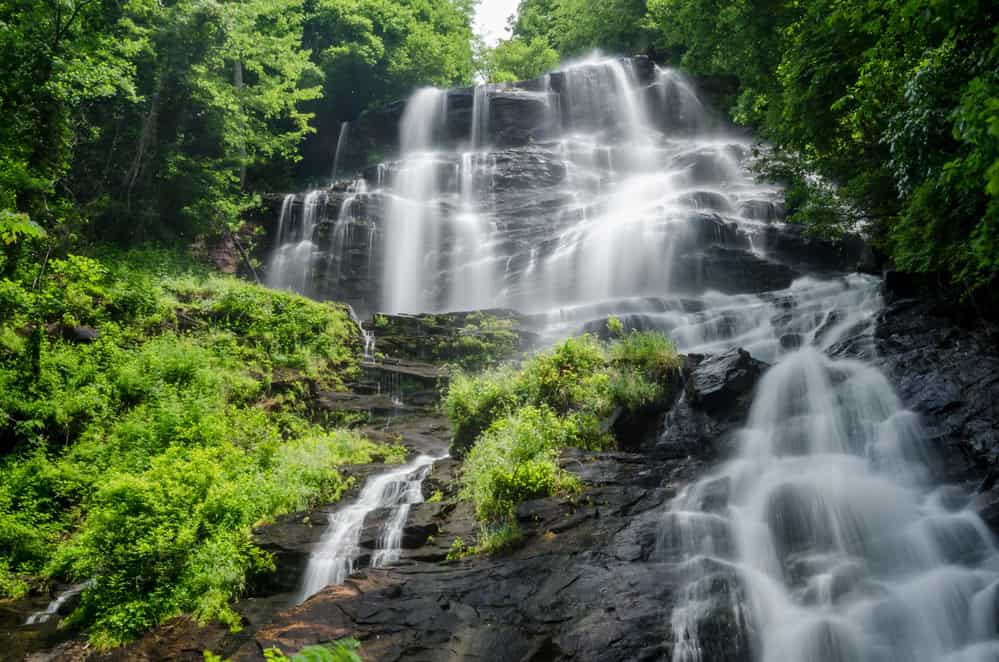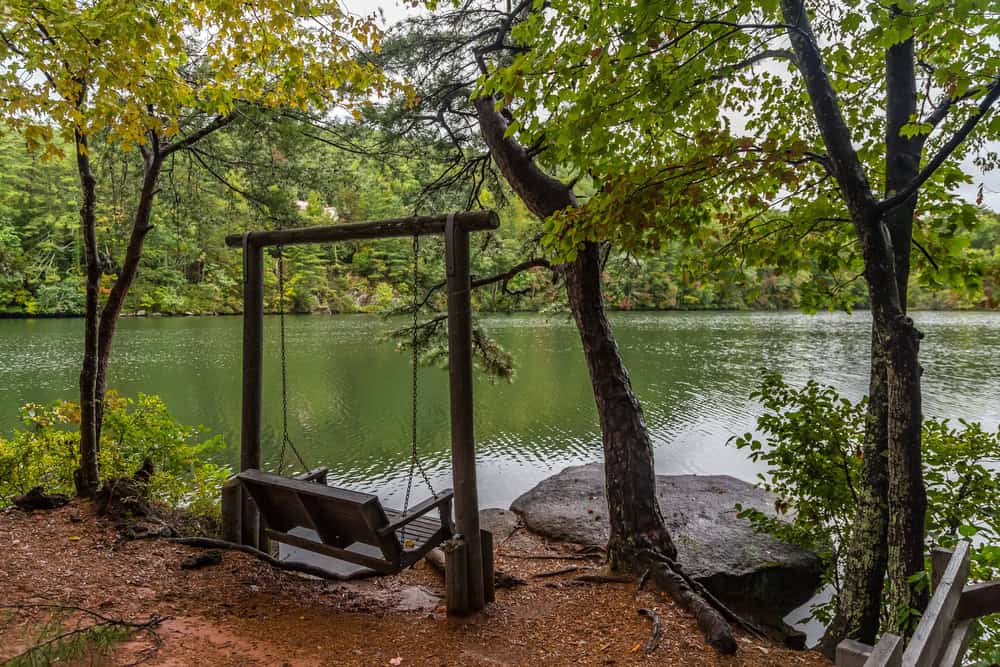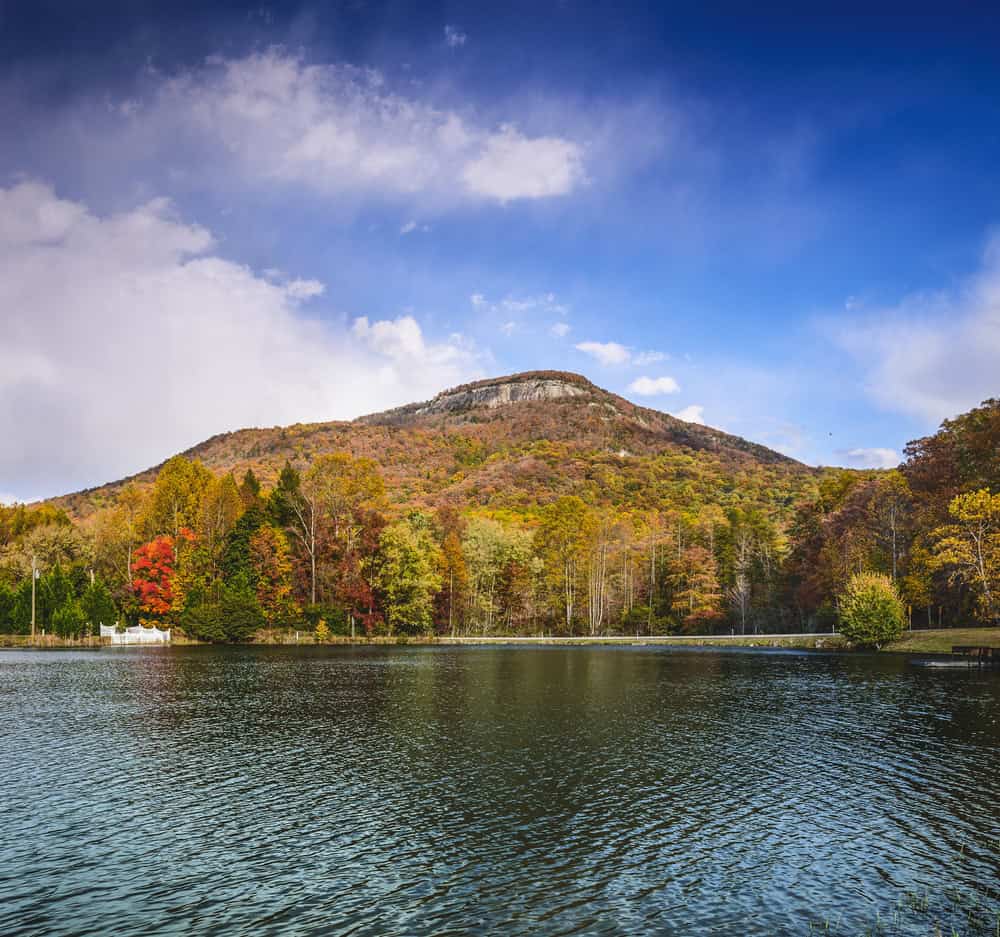
Amicalola Falls, North Georgia Mountains — credit Deposit Photos
For students, outdoor activities offer a chance to disconnect from digital devices and enjoy the natural world. It’s a refreshing break from digital screens, which have become an unavoidable part of studying and homework.
What’s more, navigating your way through new environments stimulates creative thinking and improves problem-solving skills. These abilities can directly benefit your performance in school and with homework.
You may find that spending time outdoors can only do so much to help you academically. If you are striving for better academic results, EduBirdie might be the choice to consider. This website can help you achieve success when you have to write about complex academic topics.
Let’s explore how students can find inspiration in the North Georgia Mountains.
Inspirational experiences for students
Imagine being an art or photography student. You can wake up early in the morning to capture the first light illuminating the mountain tops. Or maybe you would love to sketch a cascading waterfall as it dances down the rocks. It’s like nature’s art class, full of ever-changing landscapes that are sure to stir creativity in anyone.
For the students of history, there’s a whole treasure trove to explore. North Georgia is rich with tales from the past, from Native American trails to the heady days of the Gold Rush. You can almost hear the echoes of old stories in the wind.
Biology and environmental science students will find an outdoor laboratory like no other. The variety of ecosystems nestled within these mountains offer countless opportunities to observe and learn. You might even get to spot some of the region’s unique wildlife. It’s always a thrilling moment.
If you’re more into stars than wildlife, you’re in for a treat. Without the city’s bright lights, the stars over the North Georgia Mountains shine like nowhere else. It’s the perfect spot for astronomy students, or for anyone who simply enjoys a good stargazing session.
For those interested in agriculture, forestry, and environmental sustainability, the organic farms and farmers’ markets sprinkled across the region are a revelation. Here is what you can do:
- learn about organic farming practices
- taste the freshest produce
- participate in the vibrant farm-to-table movement
Amidst all these experiences, you’ll discover the heart and sociology of Appalachian culture. This includes the music, crafts, and community that bring the mountains to life. It’s a chance to understand a different way of life and broaden your perspectives.
And it’s not just about academics.
Adventure seekers will find their share of thrills, too. Hiking, camping, rock climbing, water sports — the options are as vast as the mountain range itself. Beyond the adrenaline rush, these activities reward you with valuable life skills, like teamwork, leadership, and resilience.

Tallulah Falls Lake, in Tallulah Gorge State Park — credit Deposit Photos
Places to explore in the North Georgia Mountains
Among the Georgia State Parks that students might enjoy exploring are:
- Amicalola Falls State Park. Home to the tallest cascading waterfall in the Southeast, it’s a stunning location for photography and nature walks.
- Vogel State Park. Nestled at the base of Blood Mountain, it offers beautiful hiking trails and is perfect for observing fall foliage.
- Tallulah Gorge State Park. This park hosts one of the most spectacular canyons in the eastern U.S., ideal for geology enthusiasts. The gorge is two miles long and nearly 1,000 feet deep.
- Smithgall Woods State Park. It’s an excellent place for wildlife observation and environmental studies, featuring protected habitats for a variety of species. It’s an angler’s paradise for trout fishing in Duke’s Creek.
- Chattahoochee National Forest. This expansive national forest offers countless trails, waterfalls, and camping sites. The famous 2,135-mile Appalachian Trail begins here, and hardy hikers can follow it all the way to Maine.

Brasstown Bald observation deck, highest elevation in Georgia — credit Deposit Photos
Discover the positive impact on your academic performance
Spending time in parks can offer students a multitude of benefits, both academically and personally. Here are some ways park exploration can benefit you.
- Happier mood. Being in nature releases endorphins, our happy hormones, which can help you feel more positive and content.
- Less stress. Green spaces provide a tranquil environment, where you can escape from academic pressure and lower your stress and anxiety levels.
- Better focus. Engaging with nature sharpens your attention to detail, whether it’s observing animals or navigating paths. This can improve your focus and concentration skills.
- Improved memory. Physical activities in nature, like hiking, can enhance brain function. This can lead to better memory retention.
- Boosted creativity. Exposure to different scenes and experiences in nature can stimulate your imagination. This can foster creative thinking and problem-solving skills.
- Enhanced self-esteem. Overcoming challenges in outdoor activities can boost your self-confidence and psychological well-being.
- Mindfulness. The natural rhythm and beauty of the outdoors encourage mindfulness, a mental state of focusing on the present moment. This can improve emotional regulation and cognitive function.
- Better sleep. Outdoor activities often lead to better sleep due to physical exertion and natural light exposure, which regulates sleep patterns. Quality sleep is essential for cognitive functions like memory, attention, and problem-solving.
- Resilience. Dealing with unpredictable elements in nature can enhance your resilience and adaptability. These are critical aspects of psychological well-being and cognitive development.
- Social skills. Group activities outdoors can improve your communication, cooperation, and leadership skills. This contributes to your overall social and emotional health.

Yonah Mountain, in the Chattahoochee National Forest — credit Deposit Photos



